Volleyball broke Edgars Yarmolatiy’s ankle March 18, 2024. He was playing with friends at Grace Evangelical Free Church in Minneapolis when his bone snapped. That’s 791 driving miles from his Bethel directory address in Oklahoma and 5,129 miles from his home in Cherkasy, Ukraine.
When doctors took a look at him, they determined Yarmolatiy was in no condition to travel back to Oklahoma, where he lived with his uncle. So he stayed in the Twin Cities with his friends for six weeks in a house just six minutes from Bethel University.
That’s when Yarmolatiy connected with some family friends in the cities who’d visited Ukraine several years prior. They told him about Bethel over breakfast and asked if he’d be interested in visiting.
“I scheduled a tour,” Yarmolatiy said. “I came here with them. I loved it, and I applied for it.”
While the Russo-Ukrainian War began in 2014 with Russia’s annexation of Crimea, the first eight years stayed relatively outside of Ukraine’s borders. But Russia’s invasion of Ukraine February 24, 2022, changed all of that.
As missiles clobbered the country, Russian forces entered from the east. Volodymyr Zelenskyy, Ukraine’s president, ordered the mobilization of every eligible male in the country between the ages of 18 and 60.
The next day, February 25, Yarmolatiy’s family – parents, uncles, aunts, grandparents – met to decide what to do with the kids. They talked for an hour and gave Yarmolaity and his two older sisters an hour to pack their belongings and leave Cherkasy, their home in central Ukraine.
“They said to pack everything, and I had no idea what [I] have to pack,” Yarmolatiy said. “It was winter, and I got a few pants, a few pairs of underwear, a few socks, two shirts, jacket, sweatshirt, that’s it.”
The three siblings, along with their grandparents, fled west — first to Poland, then Lithuania and finally Latvia, where they stayed for six months.
“[My parents] don’t want to leave,” Yarmolatiy said. “They have a house, business, great grandma. Someone has to look after her. So my parents decided to stay [in Cherkasy].”
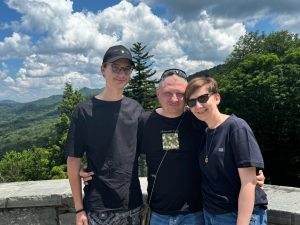
Yarmolatiy continued his education through a Ukrainian school that was established in Latvia following Russia’s initial aggression in 2014.
In August, Yarmolatiy’s parents deemed it safe enough to return to Ukraine. However, Yarmolatiy couldn’t stay long. Not only had all men between 18 and 60 been mobilized as troops, but they weren’t even allowed to leave the country. At 16, Yarmolatiy wasn’t far from being eligible to be drafted into the Ukrainian army, where he’d already had several friends killed. Yarmolatiy had to get out of Ukraine while he still could.
Yarmolatiy’s uncle moved to Edmond, Oklahoma several years ago, so Yarmolatiy once again packed his belongings to live with him. Yarmolatiy had to leave Ukraine 12 hours earlier than expected to avoid long waits at the border. Since Ukraine no longer allowed anyone to leave via plane, Yarmolatiy flew out of Latvia.
His dad drove him to the border, but that meant Yarmolatiy had to rush to hug his sisters and mother before he left.
“I understand that I will not see her for I don’t know how long,” Yarmolatiy said.
Yarmolatiy also didn’t tell any of his friends he was leaving. If word reached the wrong people that a boy so close to drafting age was leaving, they could alert the government or even take matters into their own hands to make sure Yarmolatiy didn’t leave the country.
So, unbeknownst to nearly the whole country, Yarmolatiy and his father drove to Latvia, where Yarmolatiy departed for Oklahoma. In April 2023, Yarmolatiy stepped foot on American soil for the first time. He wasn’t on vacation or studying abroad. His official status: refugee.
Yarmolatiy had always wished to visit the United States, but he wasn’t ready to leave his parents.
“How I came here without my family, it’s kind of not what I was dreaming for,” Yarmolatiy said. “It’s hard because I didn’t live without my family before.”
In Edmond, Yarmolatiy finished his online classes to graduate high school. Zoom classes had been abandoned in favor of an asynchronous system soon after the war began when students started moving across many different time zones, but Yarmolatiy still had to maneuver those time changes to make sure he turned in his assignments on time. He also had to resort to Googling any of his questions since he had neglected to pack his books when he came to the U.S.
Then Yarmolatiy worked for a year producing videos at Life Church in Edmond and building ice skating rinks in Oklahoma, Texas and North Carolina.
His uncle took him on a trip to Colorado, and his parents got to visit him in June 2024 — more than a year since he saw Ukraine for the last time. After visiting him, Yarmolatiy’s mother, Rometa, said saying goodbye felt like a funeral.
“I had no idea when he can come back, when we can see [him] again,” Rometa said. “I did not have at that time a U.S. visa, and I did not have it for quite a long time.”
Luckily, after a lengthy process in the U.S. embassy, Yarmolatiy’s parents acquired 10-year, multi-visit visas with hopes to see their son at Bethel soon.
Still, Rometa misses her son “terribly.” She doesn’t know when she’ll see him again. Yarmolatiy’s family currently lives in Cherkasy, where his sisters attend college.
“Sometimes I think I’m here and my family’s there, my sister, grandparents,” Yarmolatiy said. “I feel bad because of that.”
Air raid alerts go off almost daily, sometimes multiple times in a day, in Cherkasy. Yarmolatiy still keeps up with those warnings and receives the same notifications from an app that locates missiles as his parents.
November 16, Russia launched a massive offensive into Ukraine, Yarmolatiy said. It was 1 a.m. in Minnesota when he saw news of an explosion in his parents’ region. He immediately texted Rometa to ask if she was safe. Rometa usually responds within minutes, but that night it took her an hour to respond.
“I was not sleeping for that time,” Yarmolatiy said. “Usually… we don’t have any military stuff in our city. So I feel better for that…I just pray for that, so they will be safe.”
Luckily, his whole family was safe.
On top of Yarmolatiy’s worries for his family’s safety, he worries for his own safety as well. Yes, Yarmolatiy faces no physical threats of missiles or Russian gunfire, but money —or lack thereof —proves to be a different kind of threat.
In a struggling Ukrainian economy, his parents split their income between keeping themselves fed and paying for Yarmolatiy’s undergraduate education. Yarmolatiy wants to help.
Yarmolatiy wishes he could work even 20 hours per week. The money he’d make working part-time in America would be similar to what his parents make working full-time in Ukraine. But that’s not easy while taking 16 credits. He helps the Benson Great Hall tech team, but his hours there are limited.
“I feel safe for like, there’s no war, but I don’t feel safe that I don’t know my future.” Yarmolaity said. “If I was there, I didn’t know a lot of my future, but I was thinking, ‘Oh, I have family. I have [some]where to live.”
While Bethel provided some support through scholarships, it didn’t fully cover Yarmolatiy’s tuition costs. But family friends in Minnesota, some Rometa has known since the 1990s, helped cover another portion of the cost. Some people even chipped in anonymously.
“I’m very thankful to God and to them,” Rometa said.
– – –
After his ankle injury, a visit to Bethel and lots of paperwork to translate his Ukrainian high school education to one acceptable for Bethel, Yarmolatiy arrived on campus in August.
It was there that he encountered volleyball again. His resident assistant (RA) in Nelson Hall, Garrett Schindler, is a co-captain of the men’s club volleyball team and recruited as many of his residents as possible.
Unlike many of the other guys on the team, Yarmolatiy never played volleyball competitively, but it still gave him a place to belong. Yarmolatiy described himself as a “closed person” before coming to Bethel, something Schindler refused to believe.
“He will go play intramural volleyball, and then just sit and wait until he can ask someone else to play on their team,” Schindler said. “[I enjoy] his willingness to just be like, ‘alright, what are we doing? What’s next?’ He’s definitely not an introvert.”
Rometa said Yarmolatiy always dreamed of studying in the U.S., albeit under different circumstances. Still, Yarmolatiy’s situation is an answered prayer for his parents.
“It’s the place of his dream, and I’m very excited about what he says,” Rometa said. “It’s a Christian college, and they have a worship night, and they have small groups, and they go together to church… it’s a miracle.”
Volleyball broke Yarmolatiy’s ankle, but now he sees it as a “God-guiding ankle break.”
Now volleyball is Yarmolatiy’s path forward, if for no reason other than a way to be with his friends. On the court, thousands of miles from home, Yarmolatiy gets to be a freshman in college alongside many other 18-year-olds.
“I just forget about everything, every problem I have,” Yarmolatiy said. “I feel better with volleyball.”
Yarmolatiy’s path to the U.S. as an eligible non-citizen is a two-year plan that will expire in April. He’s applying for a student visa to stay at Bethel and complete his computer science major. He dreams of becoming an app developer.
If all goes according to plan, Yarmolatiy will be here for three more years, still playing volleyball.
As he continues to receive the air raid alerts, he’s reminded of the family he prays for every day and who he hopes to see again.
Rometa, who hears those air raid sirens almost every day, just prays for peace, which would allow her son to visit whenever he wants.
Both are ready for the war to end.


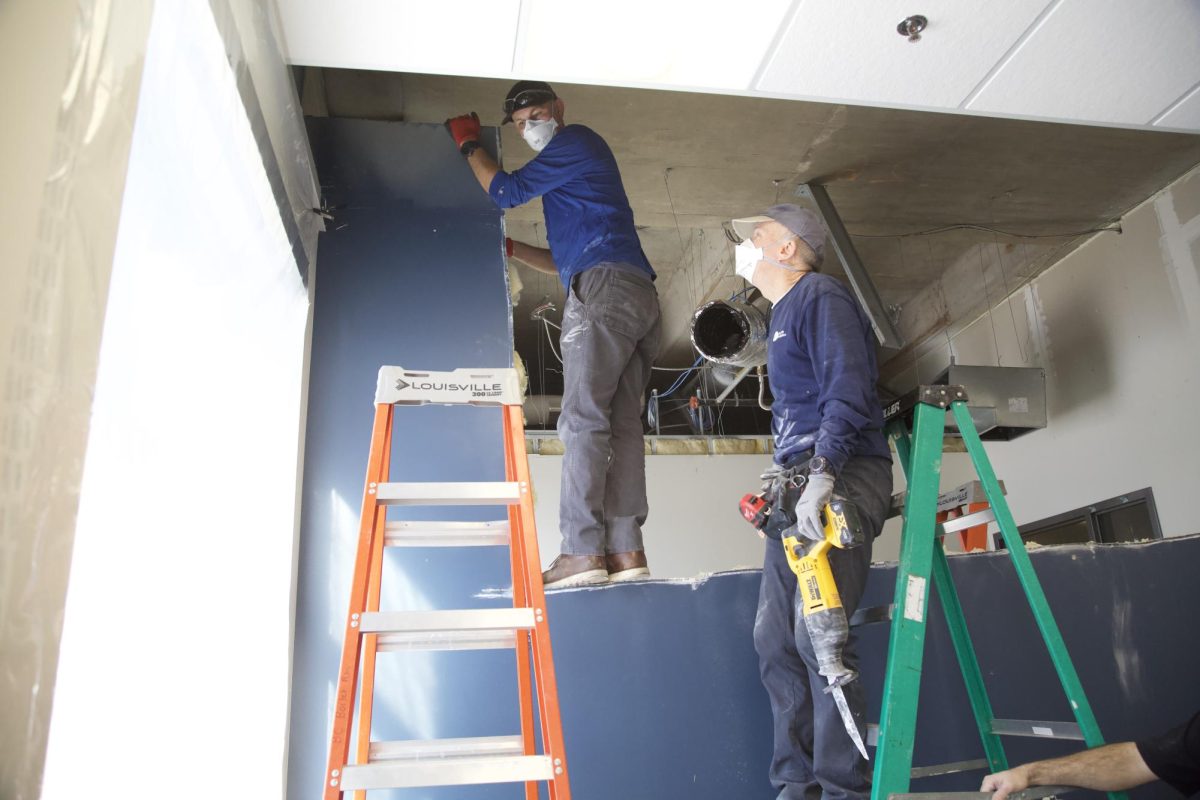
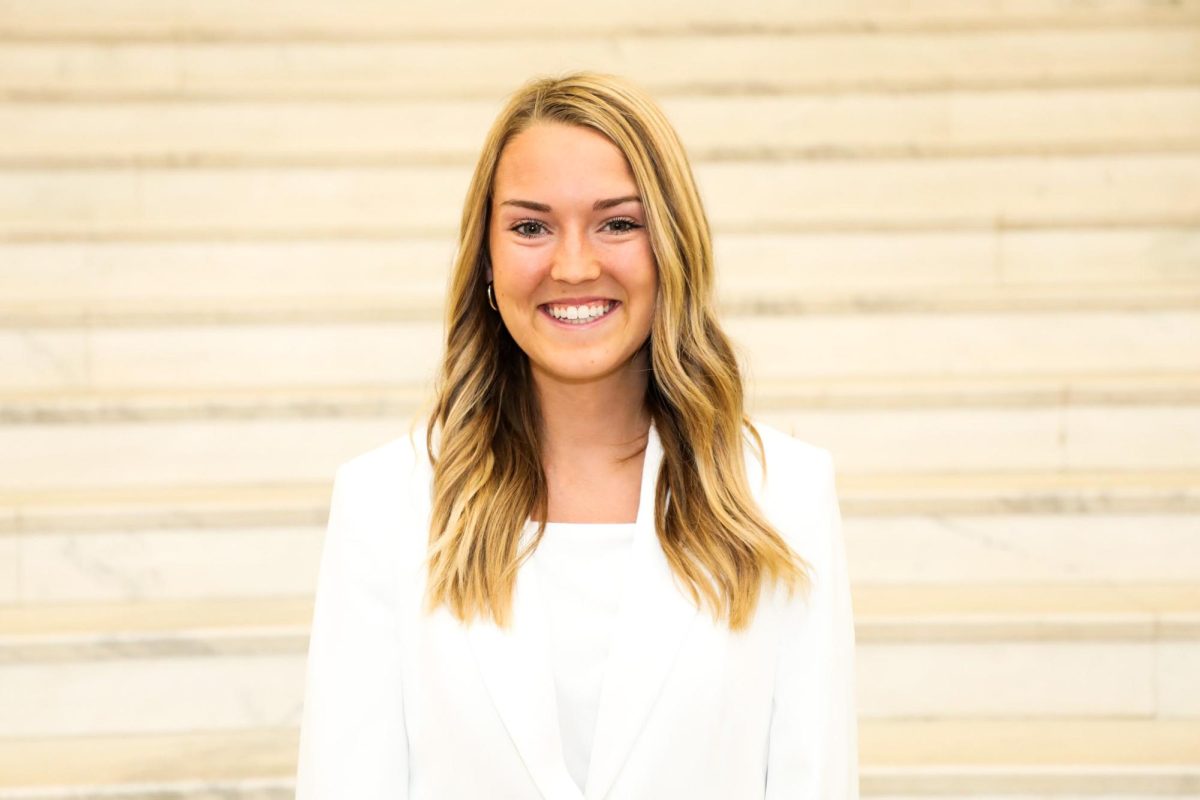

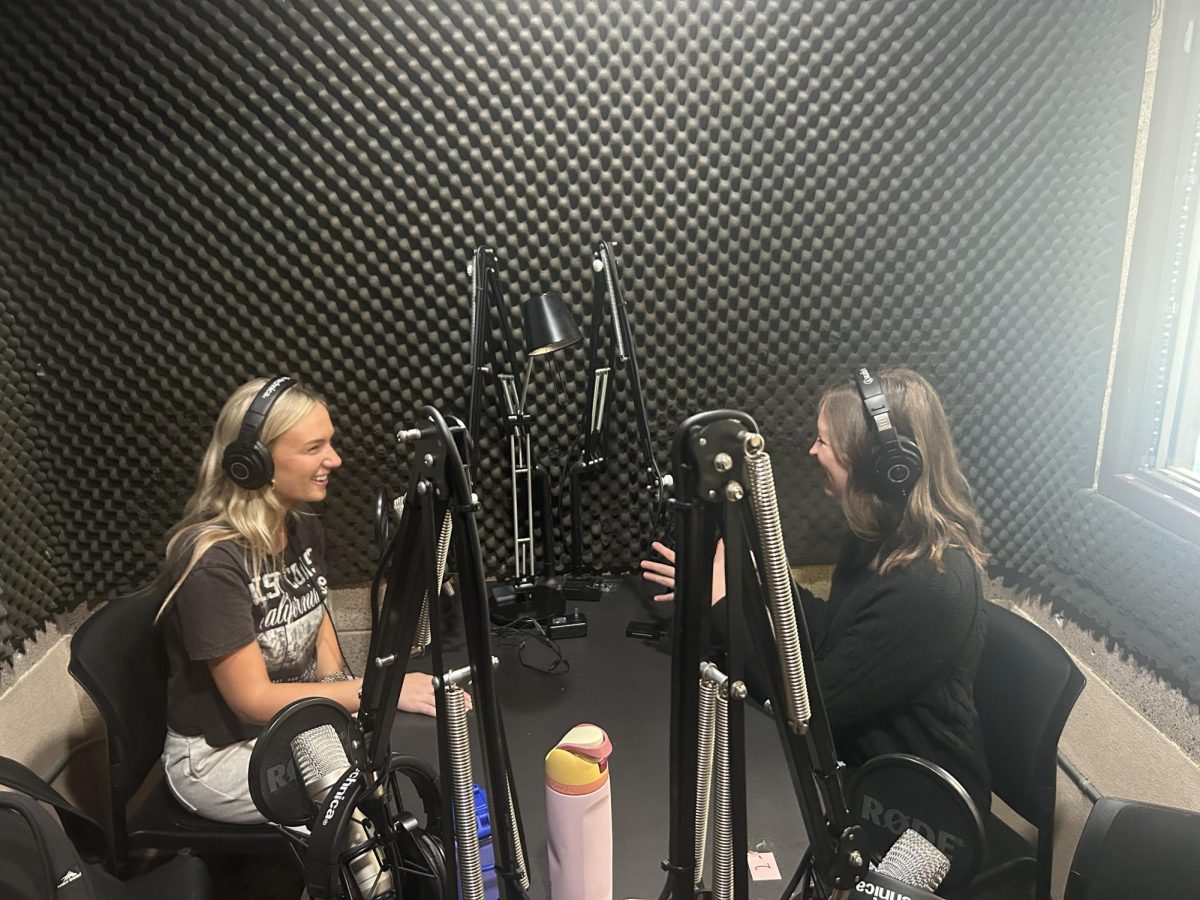

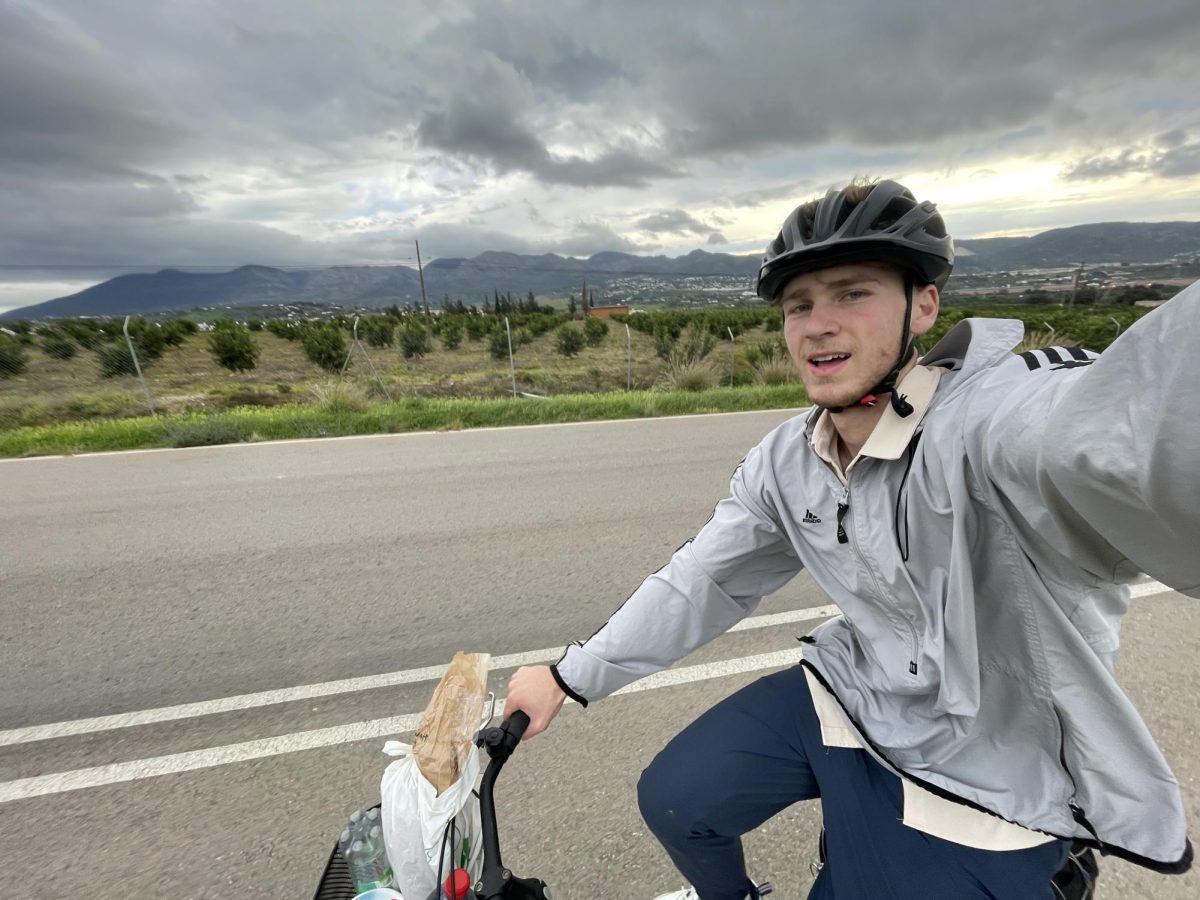
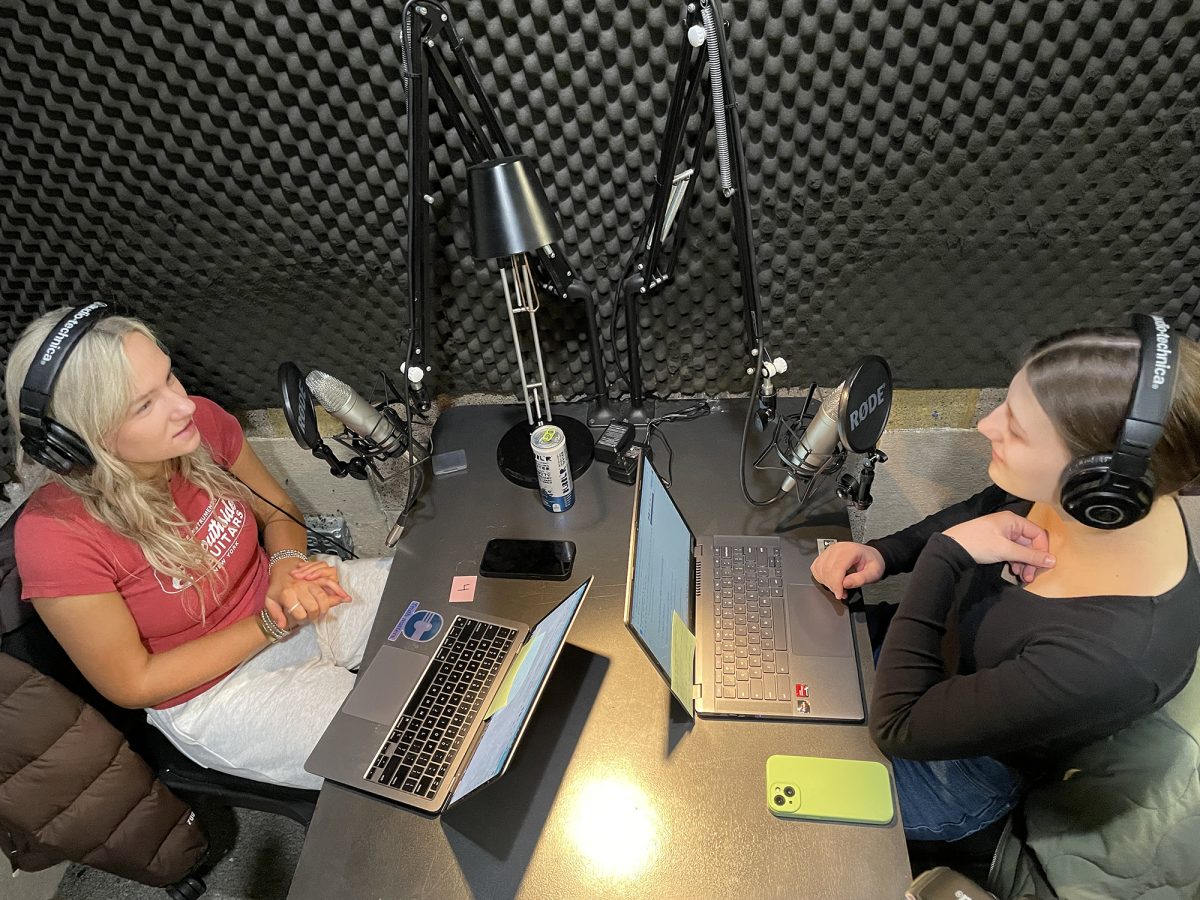
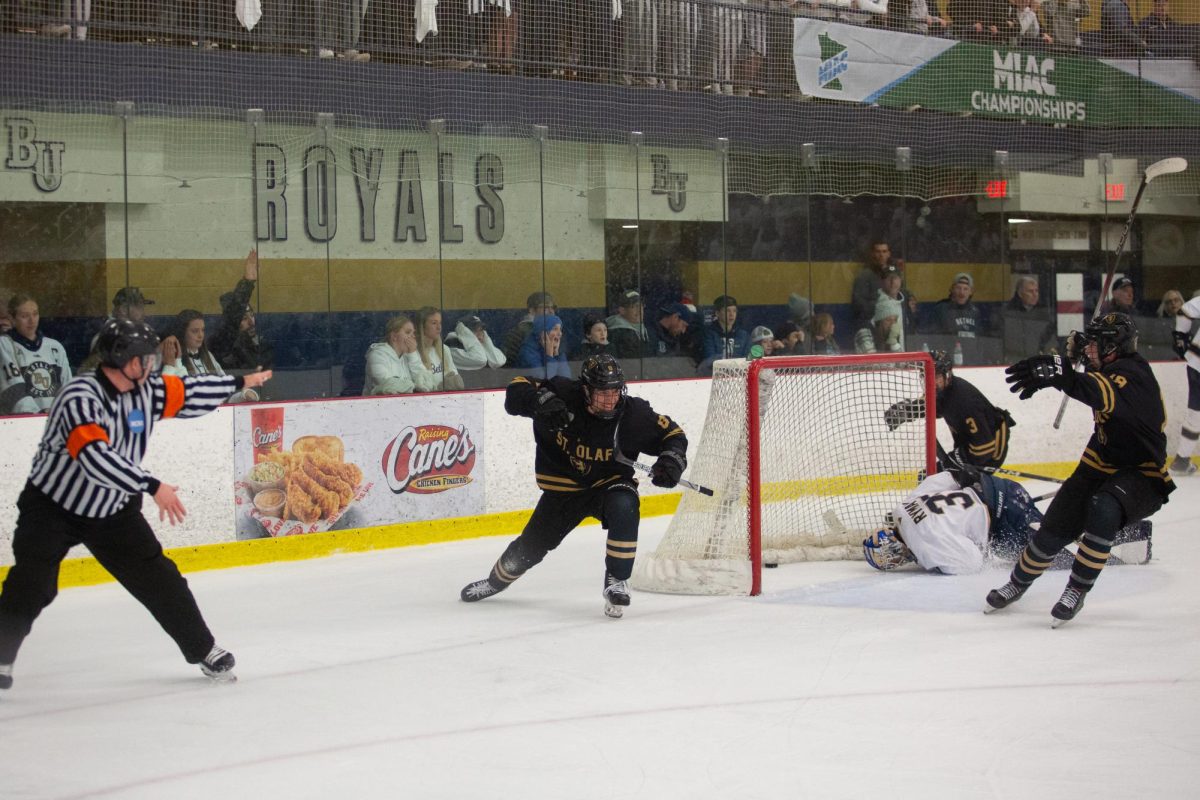
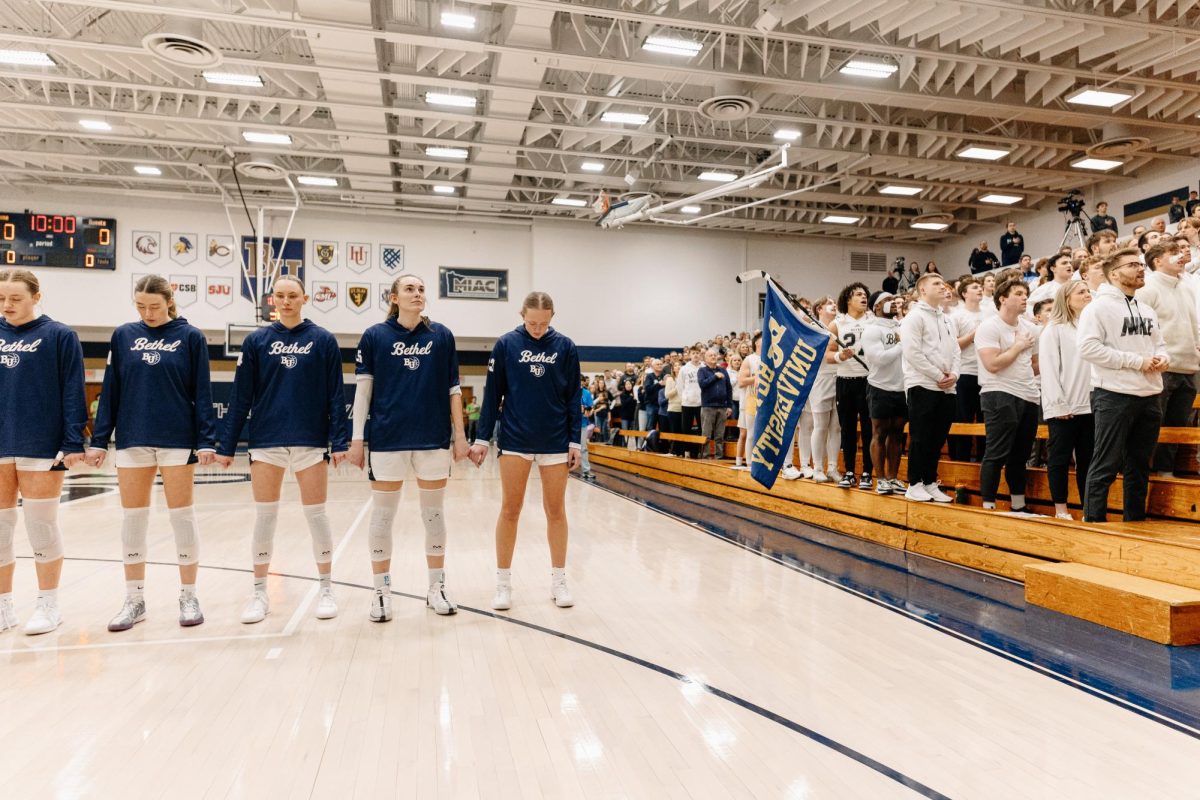
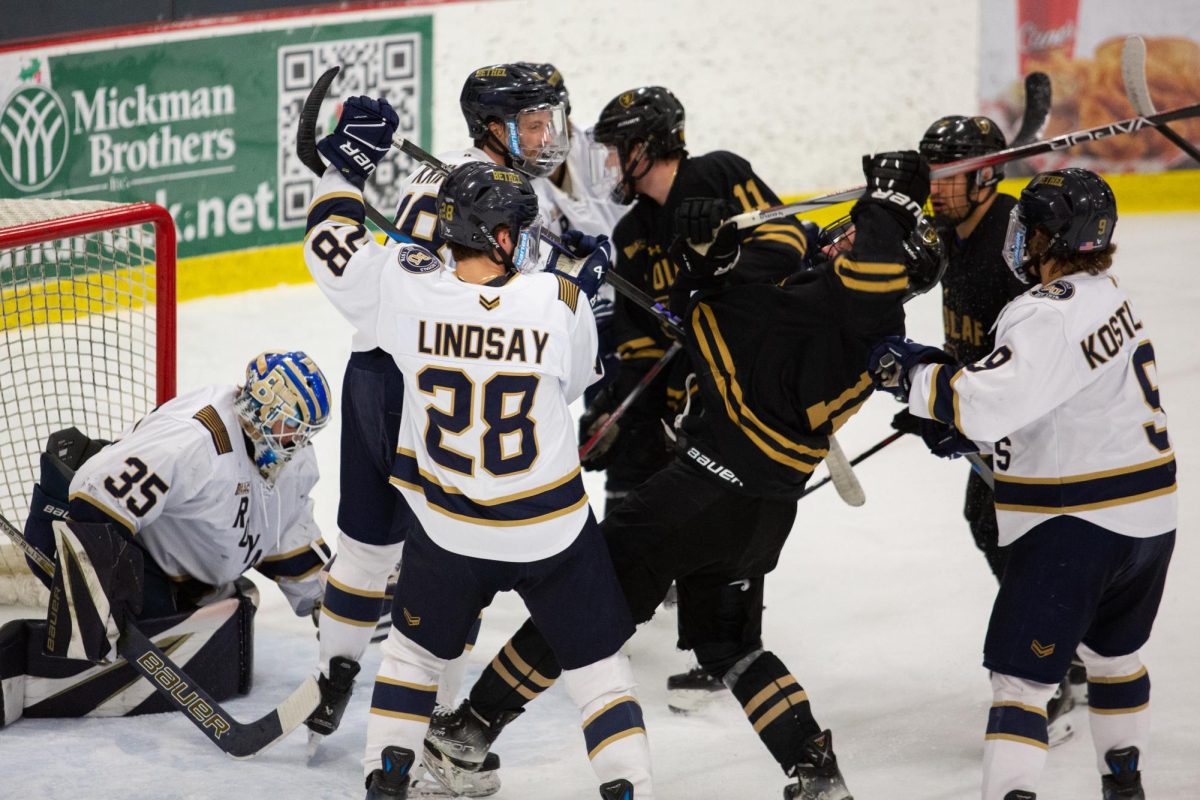
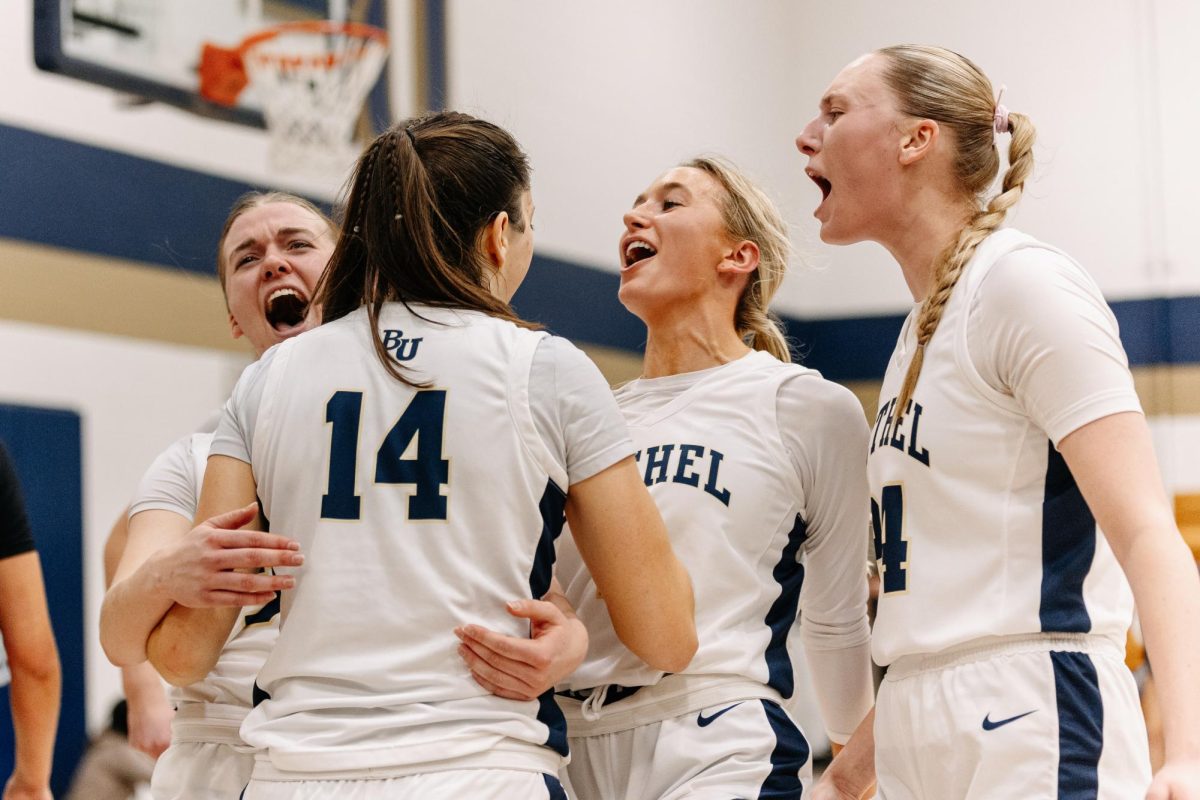
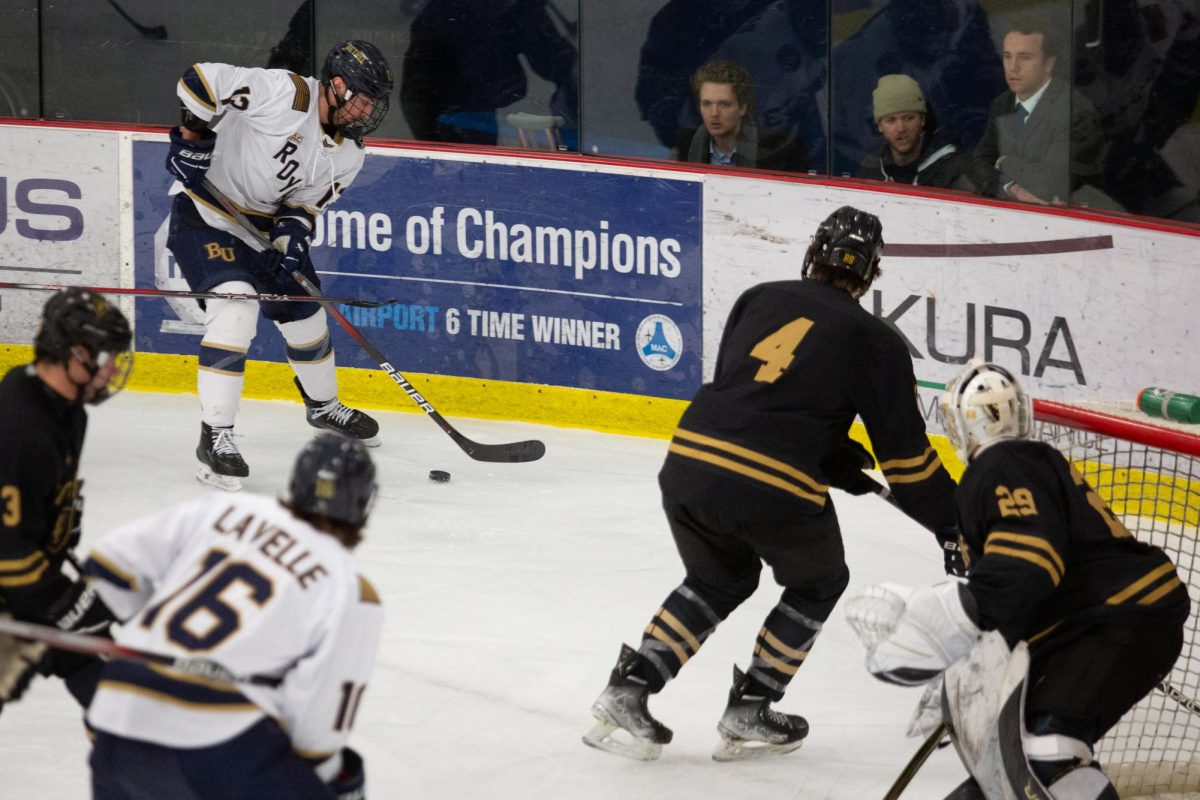






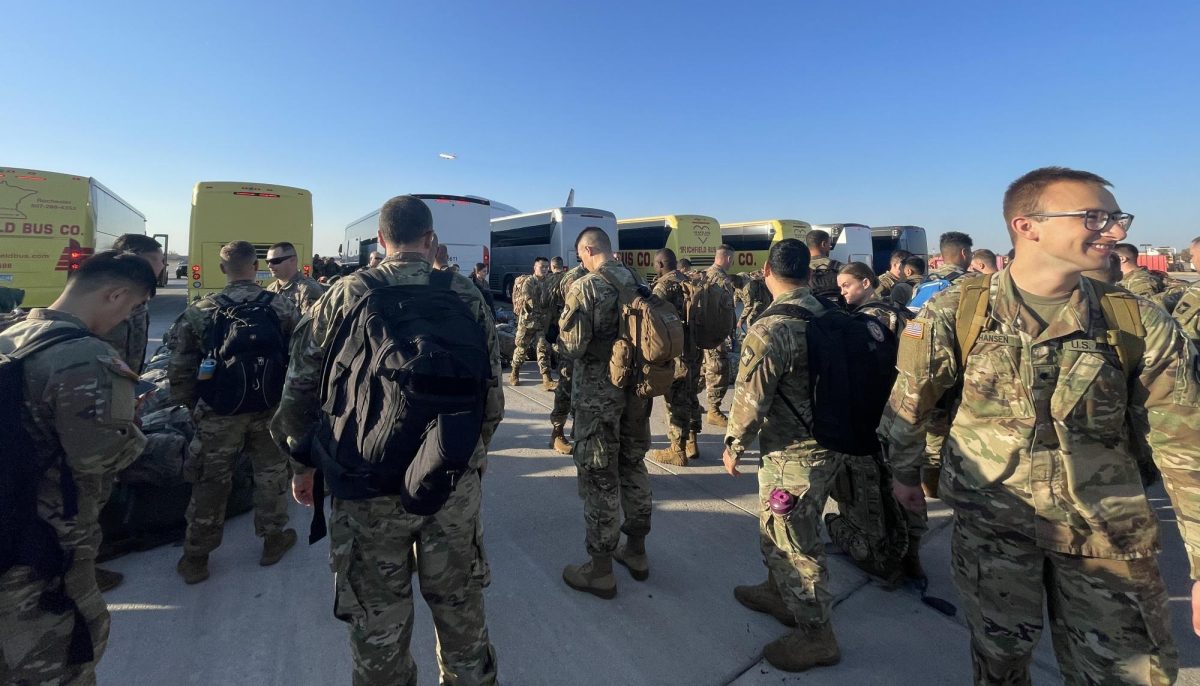



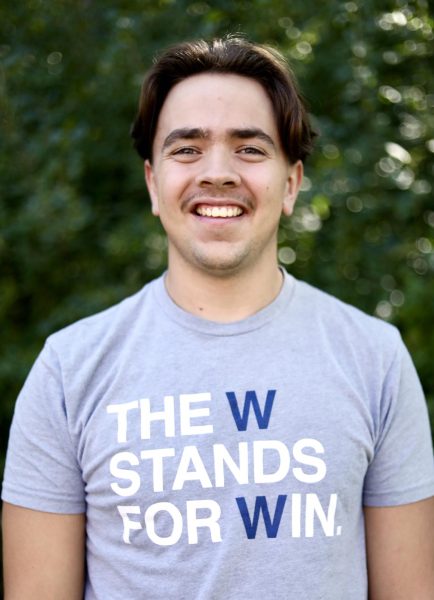
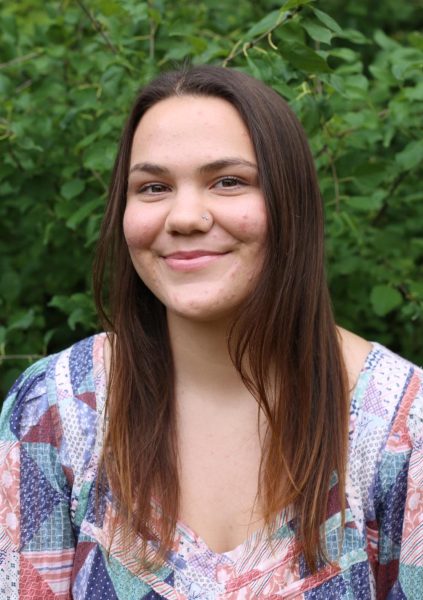
Joyce West • Dec 14, 2024 at 7:41 am
Well done!